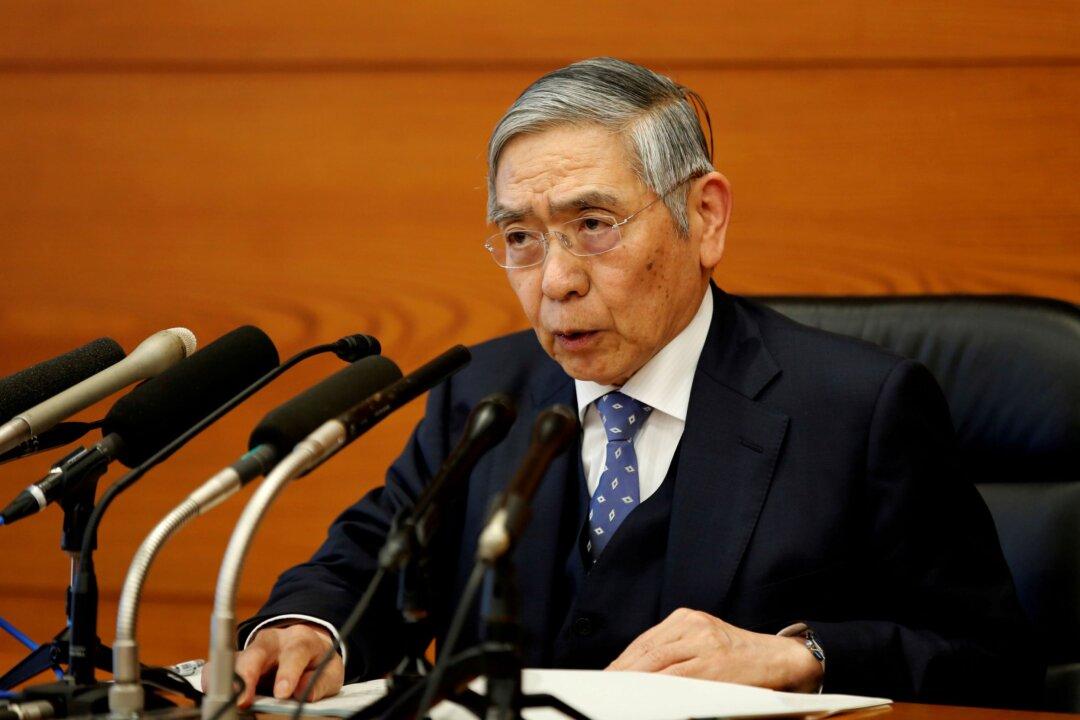TOKYO—Rising prices of daily necessities could hurt household sentiment, Bank of Japan Governor Haruhiko Kuroda said on Friday, suggesting that mounting inflationary pressure is emerging as a risk to the country’s fragile economy.
Japan’s core consumer inflation rose 2.1 percent year-on-year in April, exceeding the central bank’s 2 percent target for the first time in seven years, due largely to surging fuel and raw material costs.





